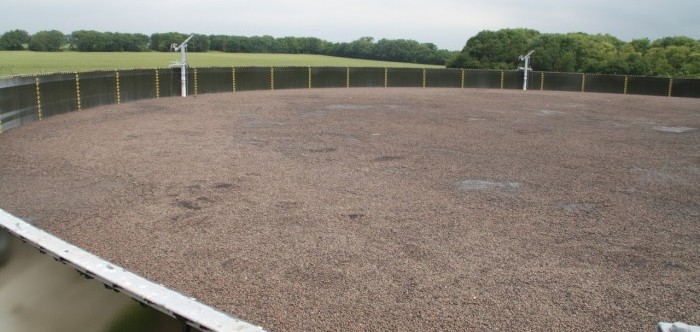The Environment Agency is extending the deadline for covering slurry stores by 18 months for farms whose slurry/dirty water has less than 1% dry matter.
The deadline for covering stores for permitted pig producers to reduce ammonia emissions remains February 21, 2021.
But in a Regulatory Position Statement (RPS), the agency has confirmed that operators who usually depend on the ‘<1% dry matter position’ to justify not covering their slurry stores, generally solid floor, straw based units, will have until August 21, 2022.
This is despite the fact that in August, the agency actually withdrew its position of allowing operators of permitted pig and poultry farms who can demonstrate that their slurry has a dry matter content of less than 1% to not cover their slurry stores because it said it found no evidence to support its continued use. Those who previously used the position have been granted an 18-month extension to provide time to adapt.
The agency’s statement does not apply to waste water (including wash down water and yard run-off) or solid manure and does not apply to any other activity.
The agency said its area staff will be contacting operators soon to find out if they want to apply for the 18-month extension to 21 August 2022.
The agency said, to comply with the new position, producers must:
- Contact your local Environment Agency Officer before October 16 to demonstrate that you need to rely on this RPS
- Write an action plan before February 21, 2021, that shows how you will cover your slurry store or install a permitted slurry acidification system (or other technique that achieves the same level of environmental protection) – your action plan must show how you will comply with BAT conditions 16 and 17 by 21 August 2022.
The agency will add an improvement condition to your permit that details these requirements.
NPA policy services officer Lizzie Wilson said, while the EA’s conclusion on less than 1% dry matter was disappointing, there is at least now clarity on the issue.
“Although it’s not the answer we wanted, an evidence- and outcome-based conclusion has been reached and we now have a clear steer as to what producers will have to do to comply.
“We appreciate that the EA’s has acknowledged the need for an extension and flexibility for those producers affected.”




